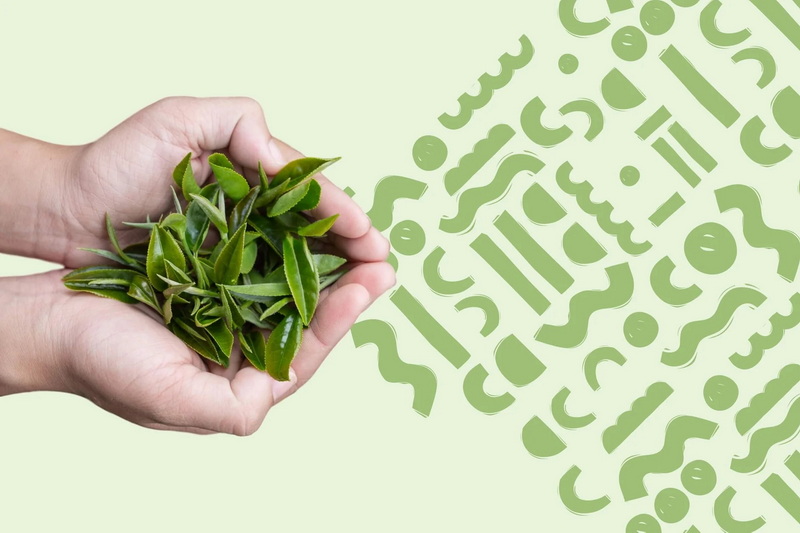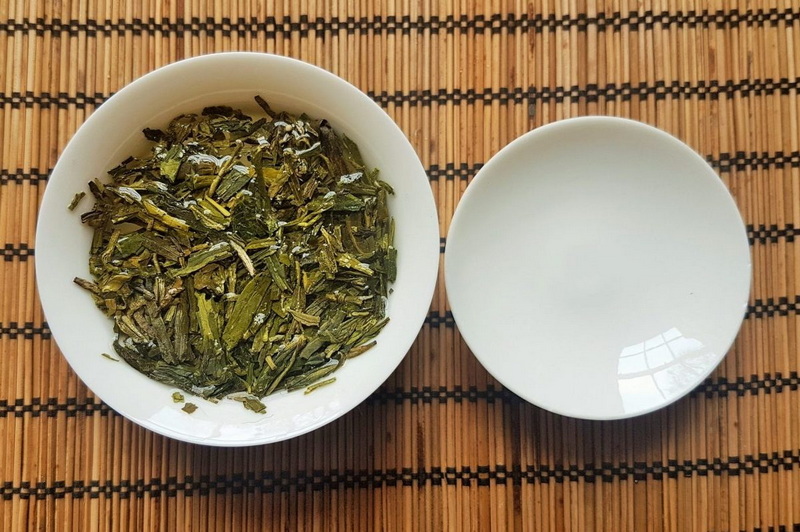Content Menu
● Introduction to L-Theanine
>> Structure of L-Theanine
● Mechanisms of Immune Support
● Clinical and Animal Studies
● Combined Effects with Other Nutrients
● Synergistic Effects with Other Compounds
● Potential Applications in Modern Medicine
● Conclusion
● FAQs
>> 1. What is L-theanine and where is it found?
>> 2. How does L-theanine support immune function?
>> 3. Can L-theanine prevent illnesses like the common cold and flu?
>> 4. What are the antioxidant properties of L-theanine?
>> 5. Is L-theanine safe for consumption?
● Citations:
Green tea, renowned for its numerous health benefits, contains a unique amino acid called L-theanine. This compound, which accounts for up to 50% of the free amino acids in green tea, is not only responsible for the umami taste but also possesses various physiological activities, including immune response modification. In this article, we will delve into how L-theanine supports immune function and explore its potential benefits in enhancing overall health.

Introduction to L-Theanine
L-theanine, also known as N-ethyl-L-glutamine, is an analog of L-glutamine and L-glutamic acid. It is primarily found in green tea leaves and has been studied for its antioxidant, anti-inflammatory, and immunomodulatory effects. The structure of L-theanine is unique, allowing it to interact with various biological pathways, including those involved in immune regulation.
Structure of L-Theanine
L-theanine's chemical structure is similar to that of glutamate, which is a neurotransmitter in the brain. This similarity allows L-theanine to cross the blood-brain barrier, influencing both neurological and immunological functions.
Mechanisms of Immune Support
L-theanine supports immune function through several mechanisms:
1. Enhancement of Innate Immunity: L-theanine has been shown to enhance the expression of cytochrome b558, a crucial component in the production of reactive oxygen species (ROS) by leukocytes. This process is vital for the innate immune response, helping to combat pathogens. Studies using U937 cells have demonstrated that L-theanine significantly increases the transcription level of gp91-phox, leading to an accumulation of cytochrome b558 proteins and enhancing the O2−-generating ability of leukocytes.
2. Regulation of Glutamine Metabolism: L-theanine competitively binds to cannabinoid receptor 1, influencing glutamine metabolism and immune function. This interaction can lead to the inhibition of inflammatory factors and the enhancement of anti-inflammatory cytokines like IL-10.
3. Antioxidant Properties: L-theanine exhibits antioxidant properties by reducing oxidative stress and increasing the activity of antioxidant enzymes. This helps protect immune cells from damage caused by reactive oxygen species.
4. Stress Reduction: Chronic stress can suppress immune function by increasing cortisol levels. L-theanine helps reduce stress by promoting relaxation and lowering cortisol levels, thereby supporting immune health.
5. Regulation of Cytokine Balance: L-theanine improves the balance of Th1/Th2 cytokines, which is crucial for maintaining a healthy immune response. It also regulates the secretion of cytokines such as IFN-γ, IL-2, IL-4, IL-10, and TNF-α, further supporting immune function.

Clinical and Animal Studies
Numerous studies have demonstrated the immunomodulatory effects of L-theanine:
- Animal Studies: In mice and rats, L-theanine has been shown to enhance immune responses, reduce inflammation, and protect against infections such as influenza. For instance, L-theanine alleviates heat stress-induced impairment of immune function by regulating the p38 MAPK signaling pathway and inhibiting inflammatory factors like IL-6, IL-1β, and TNF-α.
- Human Studies: While human studies are limited, L-theanine is believed to help prevent common colds and flu by improving immune function and reducing stress-induced immunosuppression. In athletes, L-theanine supplementation can influence the Th1/Th2 balance, potentially benefiting immune function during intense exercise.
Combined Effects with Other Nutrients
L-theanine can be combined with other nutrients to enhance its immune-boosting effects. For example, the combined administration of L-cystine and L-theanine in aged mice improves immune responses by increasing GSH synthesis and enhancing antigen-specific antibody production against influenza virus.
Synergistic Effects with Other Compounds
L-theanine can also exhibit synergistic effects when combined with other compounds found in green tea, such as catechins and caffeine. Catechins, particularly epigallocatechin gallate (EGCG), have potent antioxidant properties that complement L-theanine's immune-enhancing effects. Caffeine, while not directly influencing immune function, can enhance the bioavailability of L-theanine and other nutrients, potentially amplifying their benefits.
Potential Applications in Modern Medicine
Given its immunomodulatory properties, L-theanine may have potential applications in modern medicine, particularly in the prevention and treatment of immune-related disorders. It could be used as an adjunct therapy to enhance the efficacy of vaccines or as a dietary supplement to support immune function in individuals with compromised immune systems.
Conclusion
L-theanine, particularly in its 60% concentration form, offers significant support to immune function through various mechanisms. Its ability to enhance innate immunity, regulate glutamine metabolism, reduce oxidative stress, alleviate stress-induced immunosuppression, and regulate cytokine balance makes it a valuable compound for maintaining overall health. While more research is needed to fully understand its effects in humans, existing studies suggest promising benefits.

FAQs
1. What is L-theanine and where is it found?
L-theanine is an amino acid primarily found in green tea leaves. It accounts for up to 50% of the free amino acids in green tea and is responsible for its umami taste.
2. How does L-theanine support immune function?
L-theanine supports immune function by enhancing innate immunity, regulating glutamine metabolism, reducing oxidative stress, alleviating stress-induced immunosuppression, and regulating cytokine balance.
3. Can L-theanine prevent illnesses like the common cold and flu?
While direct evidence is limited, L-theanine may help prevent common colds and flu by improving immune function and reducing stress-induced immunosuppression.
4. What are the antioxidant properties of L-theanine?
L-theanine exhibits antioxidant properties by reducing oxidative stress and increasing the activity of antioxidant enzymes, which helps protect immune cells from damage.
5. Is L-theanine safe for consumption?
L-theanine is generally considered safe for consumption. However, it is advisable to consult a healthcare professional before adding it to your diet, especially if you have underlying health conditions.
Citations:
[1] https://www.frontiersin.org/journals/nutrition/articles/10.3389/fnut.2022.853846/full
[2] https://onlinelibrary.wiley.com/doi/10.1111/1348-0421.12977
[3] https://pmc.ncbi.nlm.nih.gov/articles/PMC4772912/
[4] https://pubs.rsc.org/en/content/articlelanding/2023/fo/d2fo02775e
[5] https://www.jstage.jst.go.jp/article/jvms/72/2/72_09-0067/_pdf
[6] https://pmc.ncbi.nlm.nih.gov/articles/PMC10179891/
[7] https://www.openveterinaryjournal.com/?mno=24370&html=1
[8] https://www.mdpi.com/2223-7747/14/3/492






























